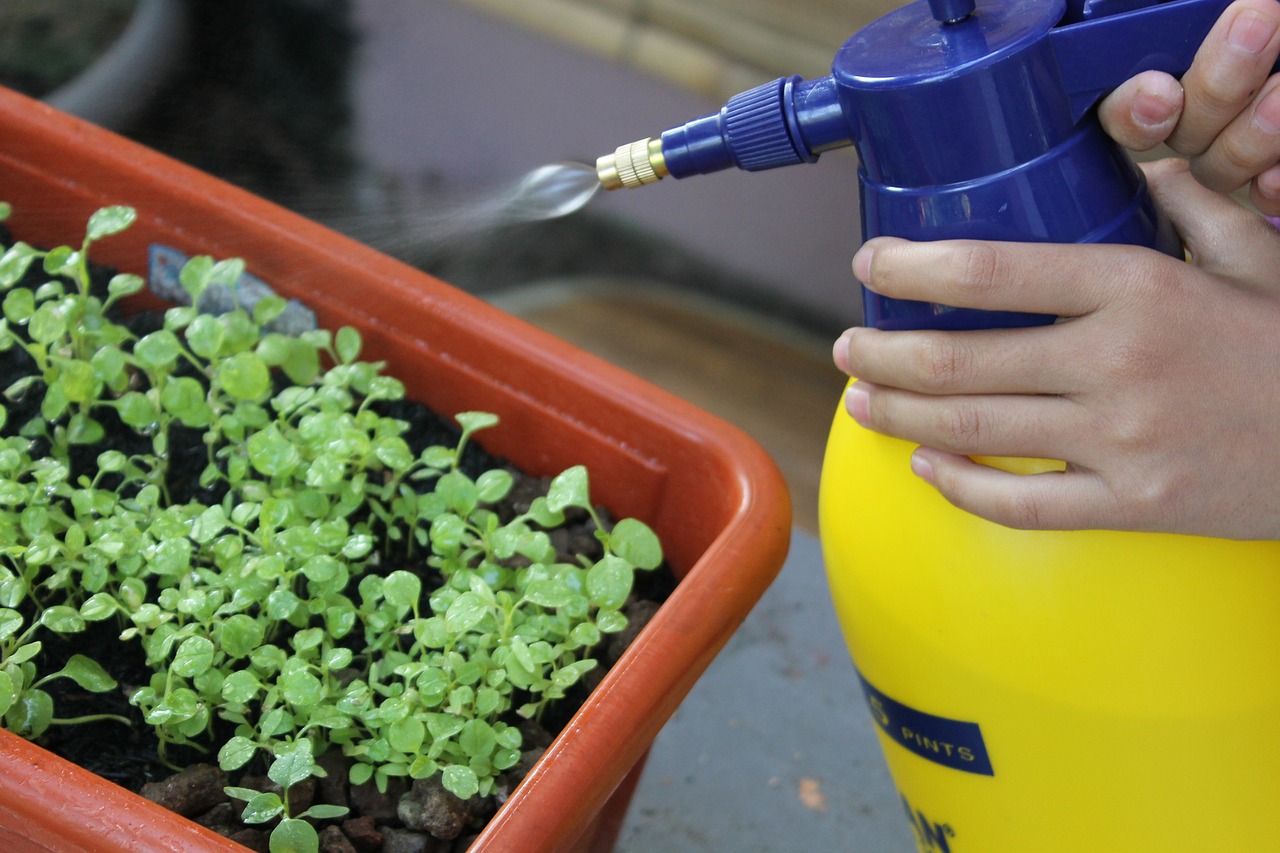The fungus is a common problem in plants. It affects leaves, stems, branches, flowers, fruits, roots, or the entire plant. The fungus can attack a plant at any stage. Fungi enter plants through the air as well as soil. When the air carrying fungi touches the plant, fungi spores are attached to the plants. Air-based fungi attack leaves, flowers, and fruits. Some fungi live in the soil and enter via roots. These fungi blocks water transferring cells in the plants that leads to wilting and even death.
Making Your Own Organic Fungicides
When fungi attacks plants, molds, scabs, black spot, mildew, even rotting appear on the plants. Since fungi take energy from the host plant, it may not only damage the plant but also kill it You can use insecticides to treat plant fungus, however, when you use chemical-based fungicides, toxins might enter your body through the plant produce you eat. Store-bought insecticides are very expensive. Therefore, a better alternative is to make your own fungicides at home. The best thing about these homemade fungicides is they are natural and very safe for plants as well as your health.
Homemade Fungicides For Your Plants
Aspirin
Crush 1 tablet of aspirin and mix the powder in 4 liters of water and spray the mixture on the affected areas in your plants. If the fungal problem is severe, you can make the concentration strong by mixing 1 aspirin in one liter of water. You can also add a few drops of cooking oil or dishwashing soap to the mixture. These ingredients will help aspirin water stick on the plant for a longer duration. When aspirin is diluted in water, it converts into salicylic acid and acetic acid, which have antifungal properties. This solution is effective on all kinds of fungal attacks including wilt, rust, and powdery mildew.
Baking Soda
Baking soda is sodium bicarbonate which has antifungal properties. A lot of gardeners use baking soda for treating plant fungus, this is very effective against black spots and powdery mildew. Add one teaspoon of baking soda in one liter of water, add a few drops of liquid soap or cooking oil. Shake the mixture well and spray on plants. Avoid using this mixture on the soil because it can slow the growth process.
Neem is an evergreen plant native to the Indian subcontinent. Neem is used in traditional Indian medicine. Neem can also be used in plants to treat various issues like fungus, pests, etc. You can add a few drops of neem oil to water and spray on plants. You can also make an antifungal spray by mixing neem leaves powder in water.
Garlic also has antifungal properties. Blend garlic and clove, add one-liter water, and shake well, then strain the liquid and fill into a sprayer.
Hydrogen Peroxide
Hydrogen peroxide is also one easy ingredient for homemade fungicides for your plant. Make a mixture by adding 20 ml hydrogen peroxide in 4 liters of water. Spray on the plan. However, make sure you are not spraying this mixture too much, otherwise, your plants might burn. Hydrogen peroxide is good against many plant diseases including fungi.
Milk Products
Milk and milk products like curd and buttermilk (fermented) can also be used as an organic fungicide on plants. Add one cup of milk or fermented buttermilk with 9 cups of water and spray on water. If you are using curd, add half a cup of curd with 10 cups of water.
Fungal problems in your plant? What You can do about this?
Apart from spraying one of the aforementioned mentioned natural fungicides on your plant, you can also remove affected leaves, flowers, or fruits to stop the spreading of the fungus. Mulching can stop the spreading of the fungus through the soil.

great work…. you covered the most essential part of gardening. Readymade Fungicides available in markets are harmful.
what a unique and very well introduction on homemade fungicides for our plants